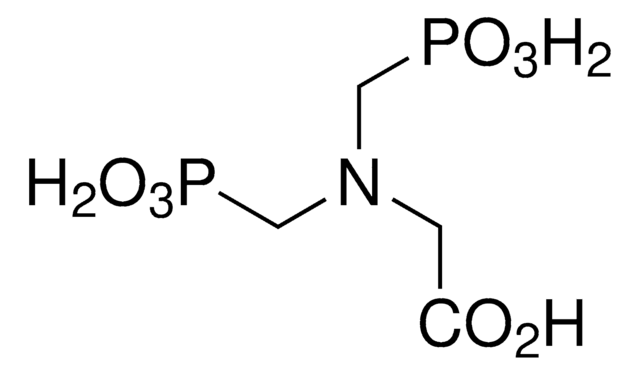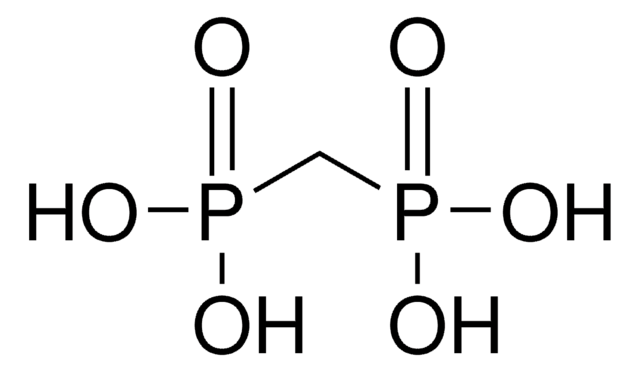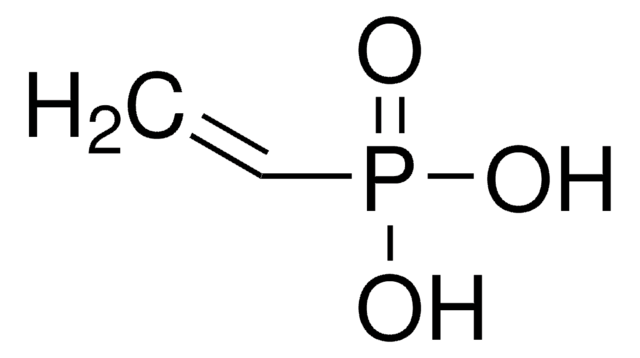462314
Iminodi(methylphosphonic acid)
97%
Synonym(s):
Aminobis(methylenephosphonic acid), Bis(phosphonomethyl)amine, Iminobis(methylene)bis(phosphonic acid), Iminobis[methylenephosphonic acid], Iminodimethylenediphosphonic acid, Iminodimethylenephosphonic acid, P,P′-[Iminobis(methylene)]bis[phosphonic acid]
About This Item
Recommended Products
Quality Level
Assay
97%
mp
220 °C (dec.) (lit.)
solubility
water: soluble
functional group
amine
SMILES string
OP(O)(=O)CNCP(O)(O)=O
InChI
1S/C2H9NO6P2/c4-10(5,6)1-3-2-11(7,8)9/h3H,1-2H2,(H2,4,5,6)(H2,7,8,9)
InChI key
ISQSUCKLLKRTBZ-UHFFFAOYSA-N
Looking for similar products? Visit Product Comparison Guide
General description
Signal Word
Warning
Hazard Statements
Precautionary Statements
Hazard Classifications
Eye Irrit. 2 - Skin Irrit. 2 - STOT SE 3
Target Organs
Respiratory system
Storage Class Code
11 - Combustible Solids
WGK
WGK 3
Flash Point(F)
Not applicable
Flash Point(C)
Not applicable
Personal Protective Equipment
Choose from one of the most recent versions:
Already Own This Product?
Find documentation for the products that you have recently purchased in the Document Library.
Customers Also Viewed
Our team of scientists has experience in all areas of research including Life Science, Material Science, Chemical Synthesis, Chromatography, Analytical and many others.
Contact Technical Service










